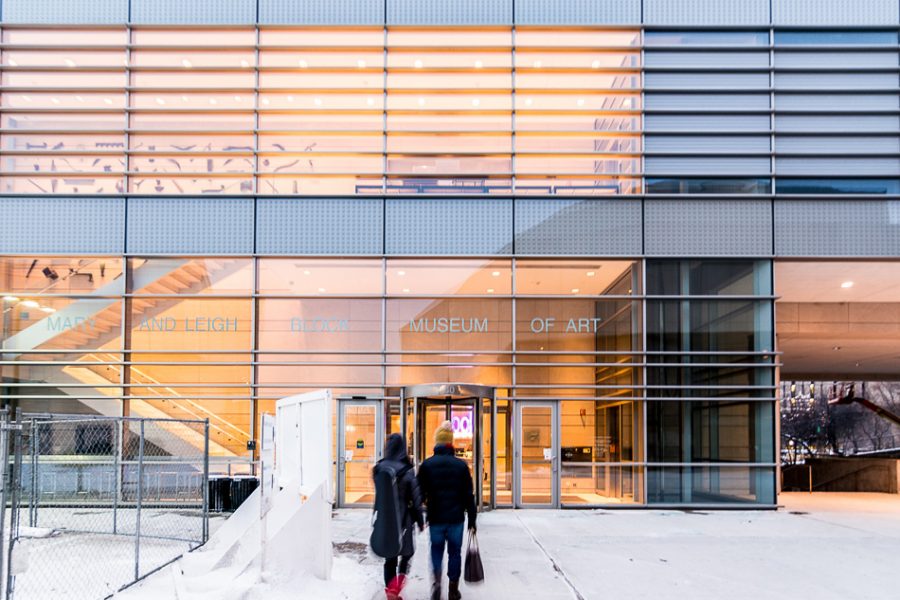Block Museum screens “Badnam Basti,” considered first LGBTQ Indian film
The Block Museum of Art, 40 Arts Circle Dr. Artist Fox Maxy screened three of his short films in an event hosted by the museum.
May 7, 2020
The Block Museum of Art livestreamed the Hindi film “Badnam Basti” on Thursday, which depicts one of the first LGBTQ relationships in Indian cinematic history and was previously thought to be lost.
Based on the 1957 novel of the same name, the film, released in 1971, focuses on a love triangle between two men and a woman who are social outcasts in their society. Noted for its “adventurous editing, strong performances, neorealist style,” according to the event listing, the movie has created a name for itself in the Indian film community. But its viewing did not come easily, because, until recently, the film was presumed lost.
The Thursday screening was the last film in the Block Cinema series “Morning Will Come: Modernity in Indian Cinema,” which features Indian cinematic classics that have rarely been shown in the U.S.
The series also complements the Block’s “Modernisms” exhibit, which highlights Iranian, Turkish and Indian art from NYU’s Abby Weed Grey Collection. The Block was able to screen copies of Indian films by partnering with the Consulate General of India, Pick-Laudati Curator of Media Arts Michael Metzger and additional museum staff.
“We decided to focus on India because of a cinematic history that is really underseen in this country,” Metzger said. “These are really rare and wonderful films that we’re very privileged to have been able to show.”
Metzger said he thought of the idea for this screening when researching possible films to include in this series. He said many of the films from India that the Block received were incomplete or not in projectable condition. The Museum looked at every single film in the archive, he said, from around the eras the series covers.
When he saw the title for “Badnam Basti,” Metzger said after further research he discovered its significance as the alleged first Indian film to explore same-sex relationships. The Block hoped to rent the film in its original 35 mm print, but after inspection, determined that the film was not in projectable condition. Fortunately, they were able to make a digital copy.
“Even the director had no idea where copies of the film existed,” Metzger said. “Scholars of Indian cinema have been aware of this for a long time, but haven’t been able to see it. So we were immediately really excited to find out that this film might actually be accessible to us.”
The screening was followed by an online discussion co-hosted by Simran Bhalla, a Ph.D. candidate in screen cultures at Northwestern, and Sudhir Mahadevan, associate professor of cinema and media studies at the University of Washington.
Bhalla said this screening is likely the first time in many decades people will have a chance to see what is “almost certainly” the first Indian film that overtly depicts an LGBTQ relationship. She said she hopes people will understand the diversity of Indian cinema “beyond just Bollywood.”
The discussion touched on themes of modernity and sexuality in post-colonial India, as well as stylistic elements of the film and its role in Indian LGBTQ history. Bhalla said she believes “Badnam Basti” is a fitting and unique addition to the series, as it represents the movement of parallel cinema in India.
“India’s LGBTQ movement has been gaining ground the last couple of decades, and so I think there’s a lot of interest in this film to see this thing that we thought that we never talked about,”Bhalla said. “It’s really important to understand how we thought about sexuality, how we govern sexuality, and it’s just important for reflecting on our past.”
Email: [email protected]
Twitter: @kmjahns
Related stories:
— The Block brings transgender stories to campus
— How to genuinely appreciate international cinema


